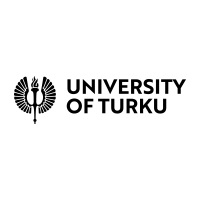雅思写作答题技巧全解析
Editor:Mark| Time:2025-02-21一、引言
雅思写作作为雅思考试的重要组成部分,一直是众多考生头疼的科目。想要在雅思写作中取得高分,掌握一些实用的答题技巧至关重要。本文将围绕“IELTS”“写作”“答题技巧”这几个关键词,深入剖析雅思写作的答题要点,帮助考生提升写作水平,在考试中斩获佳绩。
二、明确题目要求
拿到雅思写作题目后,首先要仔细研读题目要求,明确题目类型和核心话题。雅思写作题目主要分为议论文、说明文和书信等类型。不同类型的题目有不同的写作思路和结构要求。 比如议论文,通常要求考生针对某个观点进行讨论,阐述自己的立场并给出理由和例子支持。考生需要在题目中找准关键词,确定讨论的范围和重点。例如题目“Some people think that technology has made our life more complex. Do you agree or disagree?”,关键词就是“technology”和“life more complex”,考生要围绕科技对生活复杂性的影响展开论述。
三、构建清晰的文章结构
- 开头段 开头段要清晰地引出话题,表明自己的立场(如果题目要求)。可以采用背景引入、问题引入或引用名言等方式。例如在论述教育类话题时,可以这样开头:“In modern society, education plays a crucial role in shaping individuals' future. However, there is a long - standing debate about whether traditional education methods are still the most effective.”通过背景引入,自然地引出关于传统教育方法有效性的讨论,同时表明这是一个有争议的话题,为下文论述做铺垫。
- 主体段 主体段是文章的核心部分,要详细阐述观点和理由。一般建议写2 - 3个主体段,每个段落围绕一个主要观点展开论述。每个段落要有明确的主题句,然后通过举例、对比、因果分析等方法进行论证。 比如在讨论“旅游的好处”时,一个主体段可以这样写:“Traveling broadens our horizons. When we visit different places, we are exposed to diverse cultures, traditions, and ways of life. For example, in Japan, one can experience the unique blend of ancient traditions like tea ceremonies and modern technology. This kind of cultural immersion enriches our understanding of the world and helps us become more open - minded.”通过举例日本的文化体验,具体说明了旅游如何拓宽视野。
- 结尾段 结尾段要总结全文观点,再次强调自己的立场,并可以适当提出一些展望或建议。例如在论述环境保护的重要性后,可以结尾:“In conclusion, protecting the environment is of utmost importance for the sustainable development of our planet. We all should take immediate actions, such as reducing waste, conserving energy, and supporting environmental protection policies, to ensure a better future for generations to come.”
四、丰富论证方法
- 举例论证 举例是一种很有效的论证方式,能使观点更具说服力。例子要具体、真实且与观点紧密相关。除了上面提到的日本旅游的例子,还可以引用名人故事、历史事件等。比如在论述坚持的重要性时,可以举爱迪生发明电灯的例子,“Thomas Edison tried thousands of materials before he finally found the right one for the light bulb filament. His perseverance in the face of countless failures led to one of the most significant inventions in history, illuminating the world.”
- 对比论证 通过对比不同事物或情况,可以突出所讨论观点的优势或劣势。例如在讨论线上学习和传统课堂学习时,可以对比:“Online learning offers greater flexibility in terms of time and location. Students can study at their own pace and in the comfort of their homes. In contrast, traditional classroom learning provides immediate interaction with teachers and classmates, which can enhance communication skills and create a more immersive learning environment.”
- 因果论证 分析原因和结果关系,能深入阐述观点。比如在论述城市化导致交通拥堵时,可以这样写:“The rapid urbanization has led to an increase in the number of vehicles on the roads. As more people move to cities, the demand for transportation rises significantly. This, in turn, causes traffic congestion, making it difficult for people to commute efficiently.”
五、注意语言表达
- 词汇运用 丰富多样的词汇能提升文章质量。要学会使用不同词性、不同词义的词汇来替换常见表达。例如用“a variety of”替换“many”,用“attain”替换“get”等。同时,要注意词汇的准确性和恰当性,避免使用生僻或错误的词汇。
- 语法正确 正确的语法是写作的基础。要熟练掌握各种语法结构,避免出现主谓不一致、句子成分残缺等错误。在写作过程中,可以仔细检查句子结构,利用语法检查工具辅助,但也要注意工具可能存在的局限性,最终依靠自己的语法知识进行判断。
- 句式变换 运用多种句式能使文章更生动。可以交替使用简单句、复合句和复杂句。比如简单句“I like reading books.”,复合句“I like reading books which can broaden my knowledge.”,复杂句“As I have a strong interest in various fields of knowledge, I like reading books that can provide me with rich information and different perspectives.”
六、时间管理
在雅思写作考试中,时间管理也非常关键。考生一般有40分钟来完成一篇文章。建议按照开头段5分钟、主体段每个15分钟左右、结尾段5分钟的时间分配来进行写作。这样可以保证有足够的时间思考、构思和撰写文章,同时也能避免时间过长导致的疲劳和时间过短无法完成写作的情况。
七、总结
雅思写作虽然具有一定难度,但通过掌握明确题目要求、构建清晰结构、丰富论证方法、注意语言表达和合理时间管理等答题技巧,考生能够逐步提升写作能力,在考试中取得理想的成绩。希望广大考生能够认真学习和实践这些技巧,在雅思写作的道路上不断进步。





